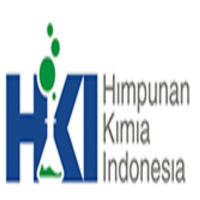PENGEMBANGAN MODUL PRAKTIKUM BIOKIMIA: ANALISIS KANDUNGAN JAHE DENGAN GC-MS TERINTEGRASI PENDIDIKAN ISLAMI MENGGUNAKAN MODEL INKUIRI TERBIMBING
Abstract
Keywords
Full Text:
PDFReferences
Aryanta, I. W. R. (2019). Manfaat jahe untuk kesehatan. Widya Kesehatan, 1(2), 39–43.
Barupal, T., Meena, M., & Sharma, K. (2019). Inhibitory effects of leaf extract of Lawsonia inermis on Curvularia lunata and characterization of novel inhibitory compounds by GC–MS analysis. Biotechnology Reports, 23, e00335.
Branch, R. M. (2009). Instructional design: The ADDIE approach (Vol. 722). Springer.
Dewi, R. K., Wardani, S., Wijayati, N., & Sumarni, W. (2019). Demand of ICT-Based Chemistry Learning Media in the Disruptive Era. International Journal of Evaluation and Research in Education, 8(2), 265–270.
Gao, R., Lloyd, J., Emenike, B. U., Quarless, D., Kim, Y., & Emenike, M. E. (2021). Using guiding questions to promote scientific practices in undergraduate chemistry laboratories. Journal of Chemical Education, 98(12), 3731–3738.
Jegstad, K. M. (2023). Inquiry-based chemistry education: a systematic review. In Studies in Science Education (pp. 1–63).
Kartini, K. S., & Putra, I. N. T. A. (2020). Respon siswa terhadap pengembangan media pembelajaran interaktif berbasis android. Jurnal Pendidikan Kimia Indonesia, 4(1), 12–19.
Khozin, K., & Umiarso, U. (2019). The philosophy and methodology of Islam-science integration: Unravelling the transformation of Indonesian Islamic higher institutions. Ulumuna, 23(1), 135–162.
Murugesan, S., Venkateswaran, M. R., Jayabal, S., & Periyasamy, S. (2020). Evaluation of the antioxidant and anti-arthritic potential of Zingiber officinale Rosc. by in vitro and in silico analysis. South African Journal of Botany, 130, 45–53.
Nakissa, A. (2020). The cognitive science of religion and islamic theology: an analysis based on the works of al-Ghazālī. Journal of the American Academy of Religion, 88(4), 1087–1120.
Nedungadi, P., Malini, P., & Raman, R. (2015). Inquiry based learning pedagogy for chemistry practical experiments using OLabs. In Advances in intelligent informatics (pp. 633–642). Springer International Publishing.
Sadia, I. W. (2014). Model-model pembelajaran sains konstruktivistik. Graha Ilmu.
Shahrajabian, M. H., Sun, W., & Cheng, Q. (2019). Clinical aspects and health benefits of ginger (Zingiber officinale) in both traditional Chinese medicine and modern industry. Acta Agriculturae Scandinavica, Section b—Soil & Plant Science, 69(6), 546–556.
Tahir, M. T. (2021). Integrasi agama dalam pembelajaran sains di Madrasah. Jurnal AL-Mutaaliyah: Jurnal Pendidikan Guru Madrasah Ibtidaiyah, 1(1), 19–36.
van Brederode, M. E., Zoon, S. A., & Meeter, M. (2020). Examining the effect of lab instructions on students’ critical thinking during a chemical inquiry practical. Chemistry Education Research and Practice, 21(4), 1173–1182.
Wicaksono, A. A., Sunarti, T., & Zainuddin, A. (2020). Validitas dan Reliabilitas Instrumen Penilaian Kinerja Praktikum Pada Materi Alat Optik Kelas XI SMA. IPF: Inovasi Pendidikan Fisika, 9(3), 325–331.
Zhu, L., Sun, D., Luo, M., Liu, W., & Xue, S. (2024). Investigating pre-service science teachers’ design performance in laboratory class: The inquiry-based design thinking approach. Journal of Science Education and Technology, 33(1), 30–44.
DOI: http://dx.doi.org/10.22373/lj.v12i1.22442
Refbacks
- There are currently no refbacks.
Copyright (c) 2024 Ardian Trio Wicaksono

This work is licensed under a Creative Commons Attribution 4.0 International License.
INDEXED IN

